An exciting new dawn for fleet optimisation


























































































































An exciting new dawn for fleet optimisation

























































































































Welcome to a special supplement dedicated to driving efficiency in the fleet transport sector.
At Optimize we specialise in fleet and freight transport optimisation, decarbonisation and transformation, using powerful artificial intelligence to solve the complex challenges our clients face today and in the future.

The computer algorithms we have developed deliver productivity breakthroughs for our clients as they seek to decarbonise their businesses, reduce emissions, improve efficiency and maximise the utilisation of their assets. We are leading the charge with this unique and innovative approach, enabling our partners, fleets and end-users, to achieve their net zero targets.
We have recently re-branded to Optimize from The Algorithm People. It’s the same great team delivering class-leading products. We think the new name better reflects what we do and who we are. Optimize defines our business – it’s not only what we do, it’s who we are.
Over the past 18 months, we have been developing a suite of new optimisation algorithms and software, based upon artificial intelligence and machine learning, with the aim of accelerating fleet decarbonisation and generating further efficiencies within fleets by harnessing the power of AI. Over the coming pages we will take a deeper dive into the benefits fleet users can derive from using these powerful new tools.
As the fleet and freight transport sector embarks on the journey to decarbonise, a new layer of complexity will be added to the transport ecosystem as businesses transition to new vehicle types, energy sources and infrastructure requirements. We believe it will be essential for users to embrace new technology to manage their fleets and maximise productivity.
Read on to find out how Optimize is leading the way with opportunities and solutions for fleet operators.
Colin FergusonOptimize
“It’s been an incredible few years for us as a business,” explains Colin Ferguson, CEO of Optimize, the new name for the Algorithm People, when we caught up with him recently. He’s got a smile on his face, so we assume the developments have been positive. “We have seen some stellar growth at the business since we launched in 2018 and we have clearly demonstrated a market need for our services, which our customers very much appreciate.”
Stellar indeed… Ferguson explains the company recorded year on year growth of over 250% for its financial year ending September 2022 and with some recent high profile contract wins – Abel & Cole, Barcode Warehouse, Pall-Ex, to name just a few – the company is well on the way to bettering that performance this year. The company is well funded – announcing £2.2 million of private capital investment in the final quarter of 2022 –and with a number of recent new appointments to the senior management team, the company is well placed to scale its business offer both in the UK and internationally.
“We have laid the foundations for growth and are now preparing our business, resources and infrastructure to maintain our growth trajectory,” he explains. “We are bringing in additional talent to compliment our existing resources and I expect the team to grow by a third over the year ahead. It is essential we continue to expand the organisation to maintain the highest levels of services to our customers.”
Never one to let the grass grow under his feet, Ferguson is driven to maintain the ethos of continual improvement at the company, pushing the business to deliver performance benefits to its expanding client base. Over the past 18 months, it has been developing a suite of new optimisation algorithms based upon artificial intelligence
and machine learning, with the aim of accelerating fleet decarbonisation and generating further efficiencies within fleets by harnessing the power of AI. This bedrock of the business enables the services and software to be enhanced giving fleet operators simple-to-use access points to the highly complex world of optimisation.
“The question is no longer whether operators can afford optimisation, it’s whether they can afford to be without it,” Ferguson states. “The time’s coming when anyone running vehicles will have to optimise them. The savings on fuel, the increase in productivity and the reduction in the number of vehicles needed speak for themselves commercially. But it’s also a vital first step in the decarbonisation journey that all operators will have to take.”
Optimisation in final mile or van fleets can produce fuel savings of up to 20%. To put that in a decarbonisation context, a 500-strong facilities management fleet could be saving more carbon through optimisation than if it exchanged 80 internal combustion engined vehicles for electric – with none of the cost. Although HGV fleets tend to still rely on the experienced transport planner, their fuel bills are so high and the availability of alternative powered vehicles so limited, that exploring optimisation is a no-brainer.
“Optimisation is available today for all fleets,“ says Ferguson. “Making your existing fleet as efficient and productive as possible now, is a necessary first step to decarbonisation – but in the long run it will be essential to commercial survival.” Many fleets are already seeing the benefits of optimisation, be it through the pay-as-you-go My Transport Planner software as a service platform, or a more in-depth bespoke application of the Optimize suite of existing algorithms to power their business
A new brand name, a new algorithm, enhancements to software and a strengthening of the team – these are exciting times for Optimize. We caught up with company CEO, Colin Ferguson to get the low-down on the company’s progress.
development. The next generation algorithm will power even more applications for the company. “Our approach isn’t simply producing better results than a human can. We’ve already established this, and the technology is proven,” Ferguson continues. “Our approach is considerably ahead of our competitors, both in terms of the savings and efficiencies we generate, and its potential.
“Traditional approaches are bottom up and iterative, where operators have to do, or pay for, extensive modelling, and resetting of parameters to get a good outcome. They are essentially having to feed in new and repetitive data, depending on the use case.
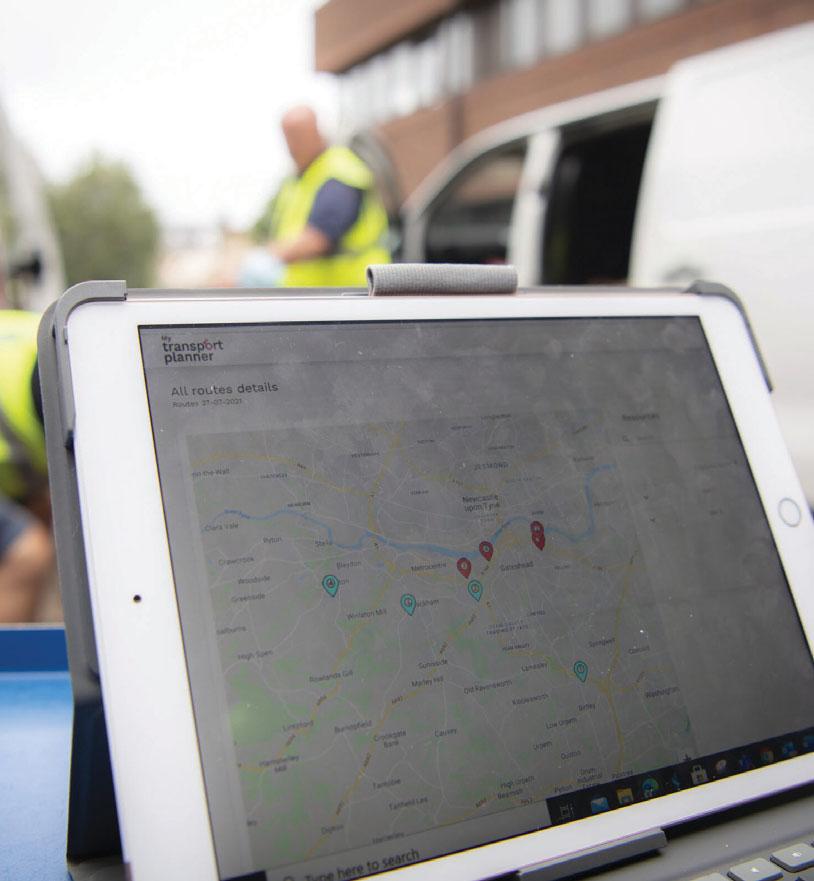
“What we’re doing is top down, where you set your business objectives, and parameters and the software will give you a good outcome very quickly without you having to worry about any of that,” he says. “You get better, faster results, with none of the time-intensive iterations or costly scenario modelling. It’s no longer necessary.
“What’s more, we are just enrolling in a quantum computing project, to explore how our algorithms can be applied to this rapidly expanding area of research.”
A number of new senior members have joined the Optimize team enhancing the fi repower of the business.
Rachel Riley has been appointed brand ambassador to drive market reach and brand recognition. Riley, best known for her role on television’s Countdown as well as 8 out of 10 Cats and other television hits, is a graduate of applied mathematics and understands the crucial role algorithms play in enabling organisations to be more effi cient and to decarbonise. “Optimize has the technology and software in place to deliver a signifi cant impact for fleet operators, supporting operational effi ciency and the journey to a zero carbon society,” Riley explained. “I’m looking forward to working with the Optimize team and playing my part in improving the effi ciency of the sector.”
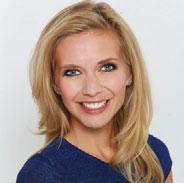
George Garnett joins the business as Chief of Staff and will support CEO, Colin Ferguson, developing the organisational and operational capacity at Optimize. Yale graduate Garnett brings a powerful skill set to the business to unlock the domestic and international growth potential of the business: “This is a unique time for the company. The combination of high energy prices, unique macroeconomic and geopolitical factors and an increasing emphasis on climate, means we are well placed to execute both for our clients’ operational ef fi ciency, but also to help deliver on the common goal to optimise our processes, cut emissions, and ultimately decarbonise our economy for the next generation.”
Lucy Allen joins the business, as Key Account Director, and will lead the business on account management and customer success. Allen is a proven and experienced senior technical sales lead and brings market knowledge and insights to the business. “The team at Optimize are highly focused and committed to delivering results for the fleet and logistics sector,” she explains. “It is great to be on board with the opportunity to drive growth.”
Dr Ross Conroy joins Optimize as Head of Research & Development after working on the Knowledge Transfer Partnership at Teesside University with Optimize. Conroy is an AI specialist bringing a deep knowledge to the organisation: “I am excited to explore the opportunities for AI in an active market,” he explains, “and I believe this will bring amazing solutions for the fleet transport sector.”
Dr Sarah Bee is the new Strategic Projects Director at Optimize, bringing her wealth of experience from the energy and fleet transport sectors to drive new projects at the company. Bee has worked on a variety of government-backed and customer-led projects. “I can see many new applications for the Optimize services across the fleet sector,” she explains. “We are focused on innovation and transforming our clients’ businesses as they prepare for the new net-zero carbon future.”
Richard Smith has been appointed Product Development Director and brings his vehicle telematics and application engineering knowledge and experience to compliment the senior management team. “This is an inspiring business and I am looking forward to driving the product development roadmap,” he explains. “We are in a new age of innovation across the sector as digital connections offer new solutions to drive operational efficiency – what a time to be alive!”
What we’re doing is top down, where you set your business objectives, and parameters and the software will give you a good outcome very quickly and without worry
Artificial intelligence expert Dr Ross Conroy is head of Research and Development at Optimize and has been working on the new algorithm which will drive huge improvements for the fleet transport sector. To get a better understanding of his work and the new services being created, we sent our reporter to explore.
“Artificial Intelligence (AI) and machine learning are the skills I specialise in,” Conroy explains. “There are various approaches used in AI, ranging from traditional techniques like rule-based systems to more advanced techniques like deep learning. However, many existing transportation optimisation products do not qualify as AI, as they rely on trial-and-error methods or heuristics to find a solution.
“In contrast, AI or rather machine learning, is focused on learning from data rather than making assumptions about what it‘s trying to plan for. Our approach to this problem solving is based on data-mining, where the software examines past solutions that worked and uses that information to continuously improve its decision-making. This involves recognising patterns in the data and reapplying solutions when similar problems arise.
“With most machine learning techniques, the more data you‘ve got, the better the predictions. What we‘re doing now means we‘ve got lots of data constantly coming in, and the idea is the algorithm will continuously improve, the more it sees.”
It’s well-known Optimize is launching a suite of new algorithms which take the latest technology to deliver transport efficiency for its clients, but perhaps you can explain a little bit more about the theory behind the developments?
“There are two sorts of AI techniques that we‘re developing at the moment,” he explains. “One is the Monte


























Carlo Tree Search (MCTS). This is applied when there is a particular sort of problem that you‘re trying to solve. There are multiple configurations that can be used and the software tries to find the best solution, given the current inputs.










“It can periodically switch between configurations to figure out if others are better. For instance ‘I‘ve been using this configuration for the last 10 minutes. I‘m gonna try this one for one or two tries and see if it’s better.’ It’s a technique commonly used in chess AI where MCTS has been applied.”



The second AI technique Conroy mentioned is a very new solution he and his team have been working. “We‘ve been using machine learning to predict the best sub-algorithm for each of many different types of problem,” he continues.
“So you could have data from very dense urban multi-drop and other data from longer distance activities. You’ll want to use a very different solver for each of those problems. You can‘t really write one solver to cover everything well. So instead, this super-algorithm uses features of the input model - such as the density of the jobs, how many there are, the type of geographical area – and tries to pick the best solver for that situation.”
Initially the application will be for optimisation, but Conroy explains there will be other opportunities: “The super-solver is something that will help with the mobile and transient hubs as well. Our strategic aim is to have one black box solution which can intelligently direct itself to whichever set of algorithms it requires to solve the problem the user has presented. A director of operations, or super-solver. All the algorithms which we currently use for separate discrete products will be available to it as needed,” he concludes.
Optimize has been securing exciting new partners and clients as it continues its growth trajectory. We round-up some of the latest announcements.
Optimize has been securing exciting new partners and clients as it continues its growth trajectory. We round- up some of the latest announcements.
Organisation: Pall-Ex
Pall-Ex links with Optimize for new estimated time of arrival service. The Optimize suite of products and service will provide optimization, decarbonization, and innovation to fleet operators through AI-based algorithms. Pall-Ex Group will use Optimize to deliver its NexusETA project, the latest addition to its Nexus freight tracking software. NexusETA will calculate estimated time of arrival and provide a delivery time window to customers. Optimize was selected after an extensive evaluation process and will support Pall-Ex Group’s future vision and objectives.
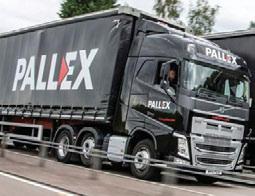
According to Dave Dunhill, CTO of Pall-Ex Group, the project will bring major benefits to customers by giving them a more specific indicator of delivery times. While Optimize CEO Colin Ferguson added that the company’s algorithms will bring innovation to the Pall-Ex business.
Organisation: Barcode Warehouse
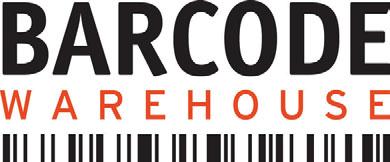
The Barcode Warehouse, a leading UK business technology solutions integrator has partnered with Optimise to deliver transport and logistics users an integrated approach to route optimisation, efficiency and decarbonisation. Under the new partnership The Barcode Warehouse will offer customers access to Optimize’ suite of services including the My Transport Planner routing and scheduling platform. The Barcode Warehouse, which has recently opened a multi-million-pound Innovation & Customer Experience Centre in the Midlands, had been searching the market for an industry-relevant decarbonisation solution to showcase within its new centre; and My Transport Planner stood out, the company confirmed.
O Organisation: Gateshead Council
Optimize has improved the efficiency of Gateshead Council’s school holiday meal scheme, Cook n’ Eat, by using its route optimisation platform, My Transport Planner
The council was providing 1,700 families with food boxes for a week’s worth of meals. Initially, the process was time-consuming and inefficient with only 30-40 deliveries per vehicle each day. By deploying the Optimize services the council was able to significantly improve the number of deliveries per vehicle per day, saving time and money on fuel. The council staff were able to complete their deliveries in half a day and return to their normal work activities.
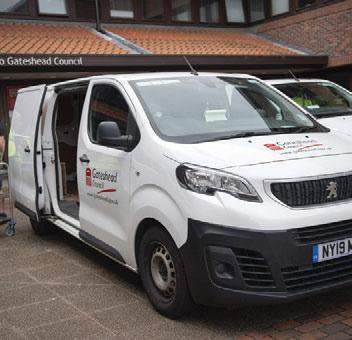
Fuel Card Services, one of the largest independent fuel card businesses in the UK, is expanding its offerings with the addition of My Transport Planner, a route optimisation platform from Optimize. The technology helps fleet operators save time and money while reducing emissions. The web-based software is easy to implement and user-friendly. It will sit within Fuel Card Services’s online portal ‘My Fleet Hub’, which also includes other products and services for fleet management Fuel Card Services has several electric vehicle products in the pipeline, including home and work charging products, and believes My Transport Planner will play a key role in this area. The ultimate goal is to make life easier for operators by accessing all fleet management services from one hub. The addition of My Transport Planner is expected to boost customer retention and support a transition to electrification of fleets.

